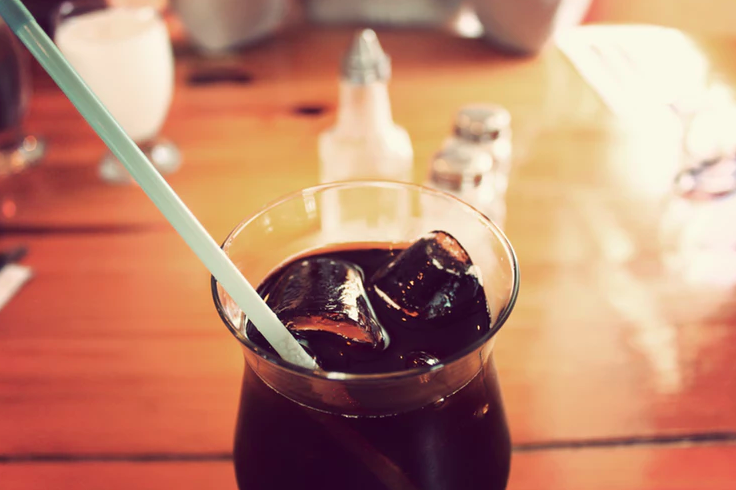A new study on artificial sweeteners and their effect on the brain sheds new light on food addiction and impulse control when it comes to high fat, high sugar foods.By now, we’re very familiar with the mind-body connection: that the brain is part of the body as a whole, not apart from it like a remote control device. What we put into our bodies affects every single part of us, and that includes food and drinks. Sweet drinks in particular.
This new study took three months to complete, and involved 14 healthy volunteers who happen to be sugar guzzlers. Each of them consumed between 2 and 6 cans of 33cl soft drinks daily. This equates to a total of 70-210g of additional dietary sugar per day. The study’s purpose was todetermine the effects of artificial sweeteners on the specific areas of the brain involved in our appetite.(Since sugary beverages in particular are linked to many modern issues with metabolism and weight gain, it makes sense that research would target alternatives to these.)
Certain areas of the brain help us determine our “reward” response to various foods. For example,electroencephalography (EEG) and electrical neuroimaging analyses showed that hyper-reactivity to high-calorie food images in brain areas involved in reward valuation predicted individuals’ short- and longer-term failure in a weight-loss program.(2)
Similar findings were found in other studies with regard to impulse control mechanisms. Greater neural activity to food viewing in thedorsolateral prefrontal brain region—which is involved in cognitive control—was associated with weight loss and prevention of that weight being regained (3).
Basically, what this means is a that if these areas of the brain are hyperactive and not functioning properly, they cause people to consume more of the foods that are giving the pleasure rewards. They’ll also drastically reduce people’s ability to say “no” to foods they KNOW are unhealthy.
Sugar VS Artificial Sweeteners
The goal of this study was to investigate changes in behavioural and brain responses to visual food cues. What this involved was a 3-month intervention in which sugar consumption was replaced with artificially sweetened equivalents. The participants didn’t make any changes to their regular lifestyle, nor did they reduce their soft drink intake. The only difference was that their usual sugary drinks were replaced with those that tasted the same, but used artificial sweeteners such as aspartame, cyclamate, acesulfam K, and sucralose.
The subjects were tested before and after, being shown 360 different foods (sugary, some high in fat, some both sugary AND high in fat, some were low in both, etc.).
It was hypothesized thatneural activity to food viewing would increase from pre-to post-intervention in brain regions associated with control over food intake. It was also expected that the participants would show increased impulse control, and would lose weight over the course of the study. Since they were reducing their sugar consumption, they likely have fewer cravings for sugary, fatty foods as a result.
The surprising results found that there was NO weight loss associated with the switch! A few participants lost up to 3kg, others gained 5kg, but overall there was absolutely no difference in weight loss.
Related:The Interesting Ways that Walnuts affect Insulin Levels
Harder to Say No
More significantly, the changes in the prefrontal cortex was a REDUCTION in activity, which means they had even LESS impulse control. This region governscognitive control and planning, executive functions, decision making, food intake, etc. upon exposure to foods, and the ability to say “no” is impaired.
These test results were the exact OPPOSITE of what had been expected. Not only were artificial sweeteners of no help in weight loss, but they actuallyaffected the brain in ways that would make it MUCH harder for the subjects to avoid eating the foods highest in calories and fat (like cookies, cake, and ice cream).
Article References:
- Camille Crézé, Marie-Laure Notter-Bielser, Jean-François Knebel, Vanessa Campos, Luc Tappy, Micah Murray, Ulrike ToepelThe impact of replacing sugar- by artificially-sweetened beverages on brain and behavioral responses to food viewing – An exploratory studyAppetite2018;Volume 123:Pages 160-168.
- D.L. Murdaugh, J.E. Cox, E.W. Cook III, R.E. WellerfMRI reactivity to high-calorie food pictures predicts short- and long-term outcome in a weight-loss programNeuroImage2012;59:pp. 2709-2721.
- M. Weygandt, K. Mai, E. Dommes, K. Ritter, V. Leupelt, J. Spranger, et al.Impulse control in the dorsolateral prefrontal cortex counteracts post-diet weight regain in obesityNeuroImage2015;109:pp. 318-327.
- Photos via Unsplash, and Wikimedia Creative Commons


